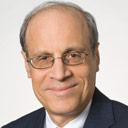Lewis R Clayton

May 09, 2012 | New York Law Journal
Supreme Court Affirms Reach of Rule Limiting Patents on Laws of NatureIn his Intellectual Property Litigation column, Lewis R. Clayton, a litigation partner at Paul, Weiss, Rifkind, Wharton & Garrison, discusses recent decisions, including one on the introduction of new evidence in an appeal of a Patent Trial and Appeal Board decision, another on the sale of trademarks in Google's "AdWords" program, one involving different musical works that were both derived from the digits of the mathematical constant pi, and more.
By Lewis R. Clayton
11 minute read
May 21, 2012 | Corporate Counsel
Trademark Owners Gain Leverage in Keyword Ad WarsCourt in 'Rosetta Stone' relied on studies showing that even savvy Web users are confused by Google's sponsored links.
By By Lewis R. Clayton
6 minute read

November 09, 2011 | New York Law Journal
America Invents Act Likely to Alter Patent Prosecution and LitigationIn his Intellectual Property Litigation column, Lewis R. Clayton, a partner at Paul, Weiss, Rifkind, Wharton & Garrison, writes that the statute's most significant and controversial alteration in patent procedure is the change from a first-to-invent to a first-to-file system. Previously, U.S. patent law focused on the question of who invented first.
By Lewis R. Clayton
12 minute read

November 15, 2004 | National Law Journal
The 'Lexmark' DecisionComputer programs have long enjoyed copyright protection as "literary works. Spare and replacement parts for these goods often must use the proprietary software written for the device for which they are made. May manufacturers invoke the copyright laws to block use of such software, effectively forcing consumers to use only authorized parts and equipment? A ruling by the 6th U.S. Circuit Court of Appeals issued last month indicates that the courts will be hostile to such efforts.
By Lewis R. Clayton
8 minute read

March 14, 2012 | New York Law Journal
Suit Over Copyright in Litigation Filings Explores Known Principles, New QuestionsIn his Intellectual Property Litigation, Lewis R. Clayton, partner at Paul, Weiss, Rifkind, Wharton & Garrison, writes that two attorneys, one based in New York and the other in Oklahoma, argue that the "unabashed wholesale copying" by Westlaw and Lexis of legal filings violates the copyrights of "the attorneys and law firms who authored them."
By Lewis R. Clayton
12 minute read
August 04, 2003 | National Law Journal
The 'Aimster' DecisionThe growth of digital technology-particularly peer-to-peer file sharing services like Napster-has sparked a new debate about the meaning of Sony.
By Lewis R. Clayton
9 minute read

June 06, 2005 | National Law Journal
The Merger DoctrineUnder the doctrine of "merger," where an idea and its expression are inseparable, copyright protection will yield to the principle that ideas may not be monopolized. But where does the idea stop and the expression begin?
By Lewis R. Clayton
8 minute read

December 27, 2002 | Law.com
The Biggest IP Cases of 2002Another year, another Festoheadline. In the most significant patent case of the year, the U.S. Supreme Court affirmed its commitment to a robust doctrine of equivalents. Other IP decisions that made an impact in 2002 addressed the jurisdiction of the Federal Circuit, the issue of fair use on the Internet and the first criminal prosecution under the DMCA.
By Lewis R. Clayton
9 minute read

August 13, 2007 | National Law Journal
Impact of 'MedImmune'A footnote in the Supreme Court's MedImmune decision discusses the test used by the Federal Circuit to determine when a party threatened with a claim of patent infringement may sue for declaratory judgment. Under the test, a plaintiff must show that it has a "reasonable apprehension" that "it will face an infringement suit." That test, the footnote observes, conflicts with at least three Supreme Court declaratory judgment decisions.
By Lewis R. Clayton
9 minute read

February 19, 2007 | National Law Journal
'MedImmune' RulingWhile it settles this issue of licensee standing, MedImmune has stimulated debate on a host of questions concerning the right of patent owners to discourage, without explicitly prohibiting, licensee challenges to patent validity or enforceability.
By Lewis R. Clayton
8 minute read
Trending Stories
- 1Judge Denies Sean Combs Third Bail Bid, Citing Community Safety
- 2Republican FTC Commissioner: 'The Time for Rulemaking by the Biden-Harris FTC Is Over'
- 3NY Appellate Panel Cites Student's Disciplinary History While Sending Negligence Claim Against School District to Trial
- 4A Meta DIG and Its Nvidia Implications
- 5Deception or Coercion? California Supreme Court Grants Review in Jailhouse Confession Case
More from ALM
- Legal Speak at General Counsel Conference East 2024: Match Group's Katie Dugan & Herrick's Carol Goodman 1 minute read
- Legal Speak at General Counsel Conference East 2024: Eric Wall, Executive VP, Syllo 1 minute read
- Legal Speak at General Counsel Conference East 2024: Virginia Griffith, Director of Business Development at OutsideGC 1 minute read



